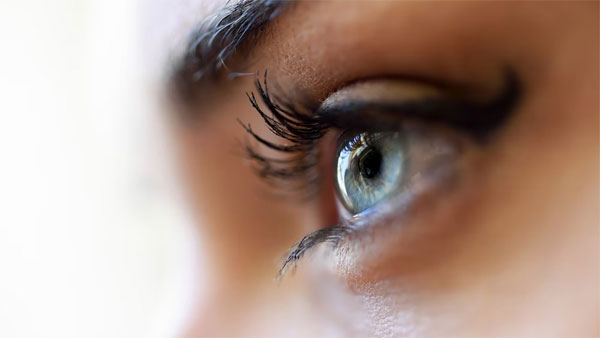Daijiworld Media Network - New Delhi
New Delhi, Aug 19: If you've ever felt eye strain or mental fatigue after binge-watching Instagram or YouTube reels, you're not alone. A recent study published in the Journal of Eye Movement Research reveals that just one hour of scrolling through short-form social media videos on smartphones can significantly strain your eyes and impact mental health.
The research, conducted by a team from the SRM Institute of Science and Technology, found that the type of content consumed plays a crucial role in digital eye strain—not just screen time alone.
“Social media content causes greater pupil fluctuations than reading or watching a video,” the researchers noted.

The Study: What Was Measured
Using a portable, low-cost visual activity monitoring system, the researchers tracked eye behaviour among young Indian adults during one hour of smartphone use. Participants were split into three activity groups:
• E-book reading
• Video watching
• Scrolling social media reels
Metrics such as blink rate, inter-blink interval, and pupil diameter were closely monitored.
Results showed that social media reels led to more screen variations, impacting pupil dilation and suppressing natural blink reflexes due to the constant shifts in brightness and content intensity.
“This reduction in blink rate and increase in pupil dilation can lead to visual fatigue,” the study said.
Physical & Mental Impact
The consequences weren’t just optical.
• 60% of participants reported mild to severe physical discomfort, including eyestrain, neck pain, and hand fatigue after extended use.
• Even more concerning, 83% experienced psychophysiological symptoms such as:
o Anxiety
o Sleep disturbances
o Mental exhaustion
Coping Strategies
Though the findings are alarming, the study found that some users are taking steps to mitigate the effects:
• 40% of participants used blue light filters or activated dark mode to reduce eye strain.
• Others reported taking frequent breaks or following the 20-20-20 rule (look 20 feet away for 20 seconds every 20 minutes).
Key Takeaway
Experts recommend limiting continuous screen time to under 20 minutes and being especially cautious with content like short-form videos that cause more intense visual engagement. Regular breaks, dark mode, and screen filters are small but effective changes to reduce long-term impact.
With social media usage on the rise, especially among youth, the study underscores a growing need for digital wellness awareness and healthy screen habits in an increasingly online world.